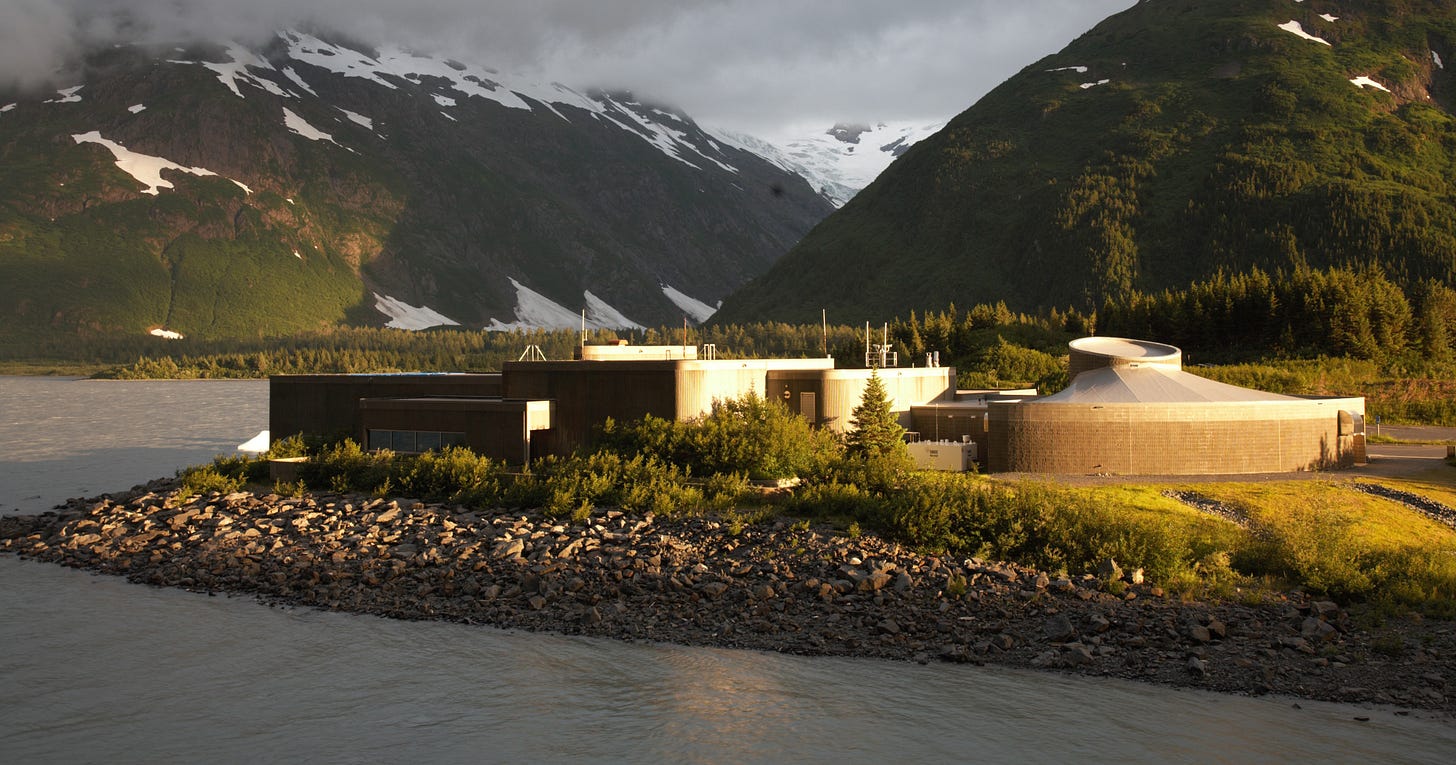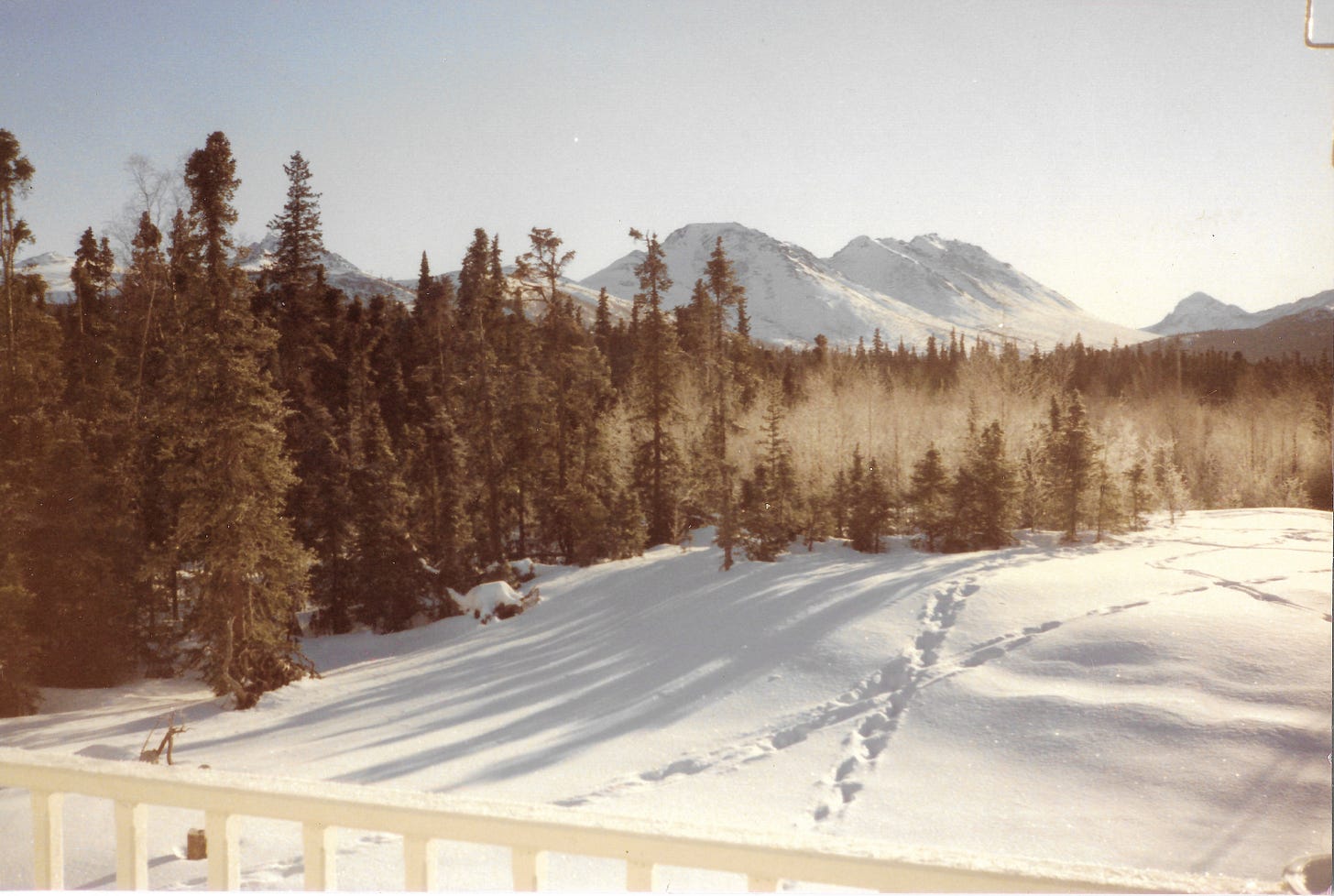Welcome to EarthView
A Newsletter About Climate & the Environment
Amongst my fondest memories of childhood was visiting the Portage Glacier Visitors’ Center in Girdwood, Alaska.
Just 45 minutes south of Anchorage, the visitors’ center - a retro-futurist concrete brutalist structure - looks like someone plopped a rebel outpost from the original Star Wars onto an alpine lakeshore. It was built in 1986, two years after I was born. And as a very young child in the 1980s, I was a regular.
The building had exhibits about the glacier, the Chugach National Forest in which it sat, and the astounding wildlife of the area. But the star of the show was the view. Massive bay windows pointed directly across the lake and towards the glacier, which lay on the far end.
As a young Alaskan, I was no stranger to good views. This, for example, was my backyard:
But there was nevertheless something special about seeing the majestic Portage Glacier up close.
My family moved away from Alaska when I was seven. Sometime in my mid-twenties I learned that the glacier I had grown up admiring had retreated behind a mountain, out of view of the building’s windows. Visitors since the mid-1990s are obliged to either hike the mountain to get a proper view or - in summer - take a boat across the lake.
The realization that in two short decades my childhood memories had become outdated was what first alerted me to the seriousness of climate change. My experience with Portage Glacier was just an anecdote, an N of one that had very little meaning on a global scale.
Still, the melting of my own personal favourite glacier caused me to take a deeper interest in climate. I discovered that Portage had recessed so rapidly at least partly because of anthropogenic climate change. But more importantly, the illustrative anecdote aligned with the data. Global warming was not a distant threat stalking our hypothetical future. It was already here. And its effects were worse than expected.
Today in 2025 there is no question that climate change is the single defining issue of our time. And the fight to prevent dangerous warming is an almost Shakespearean duel between humanity’s intelligence and its limbic irrationality - with the fate of the planet hanging in the balance.
The high drama of climate change, however, can distract us from the myriad other environmental challenges facing our planet, And increasingly I am curious about what’s going on with the Earth beyond its ill-advised excursion into Pliocene climatic conditions.
EarthView is a newsletter intended to be a complete source for all environmental news.
I hope its expansive field of vision distinguishes it from other news sources which compete for your attention. Here you’ll find news articles, digests and commentary on climate science, rainforests, the energy transition, conservation, plastic pollution, endangered species, wind power, solar power, geothermal, heat pumps, electric vehicles, biomes, ecoregions, organic agriculture, and much more.
It’s the easiest way to keep yourself updated on anything and everything related to climate and the environment. And I hope you’ll consider signing up:




